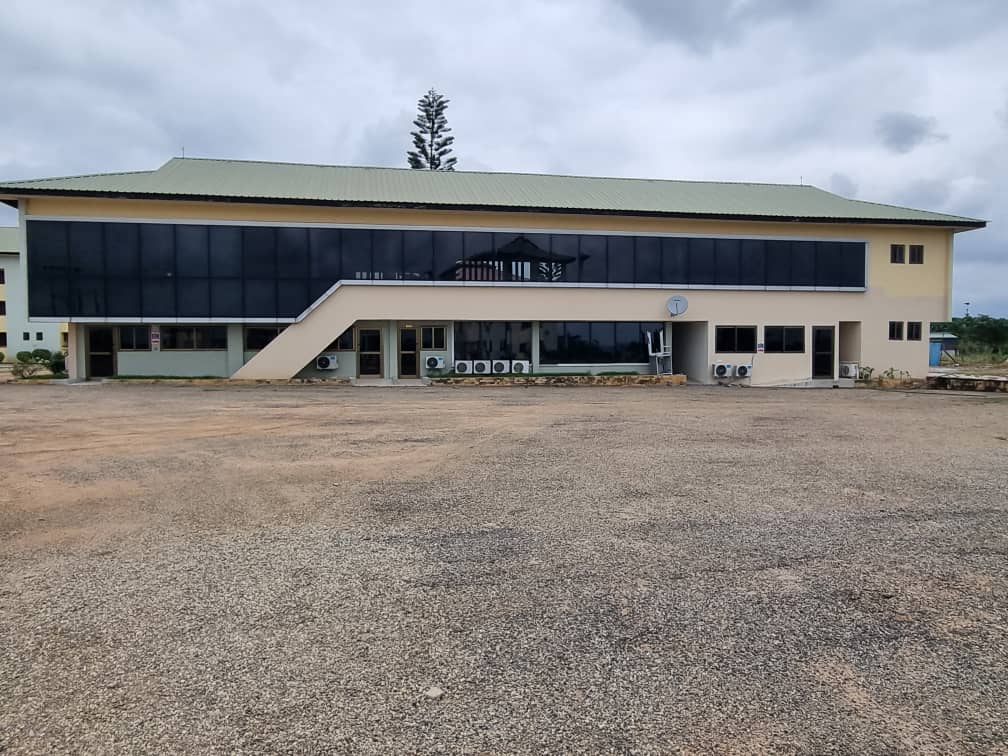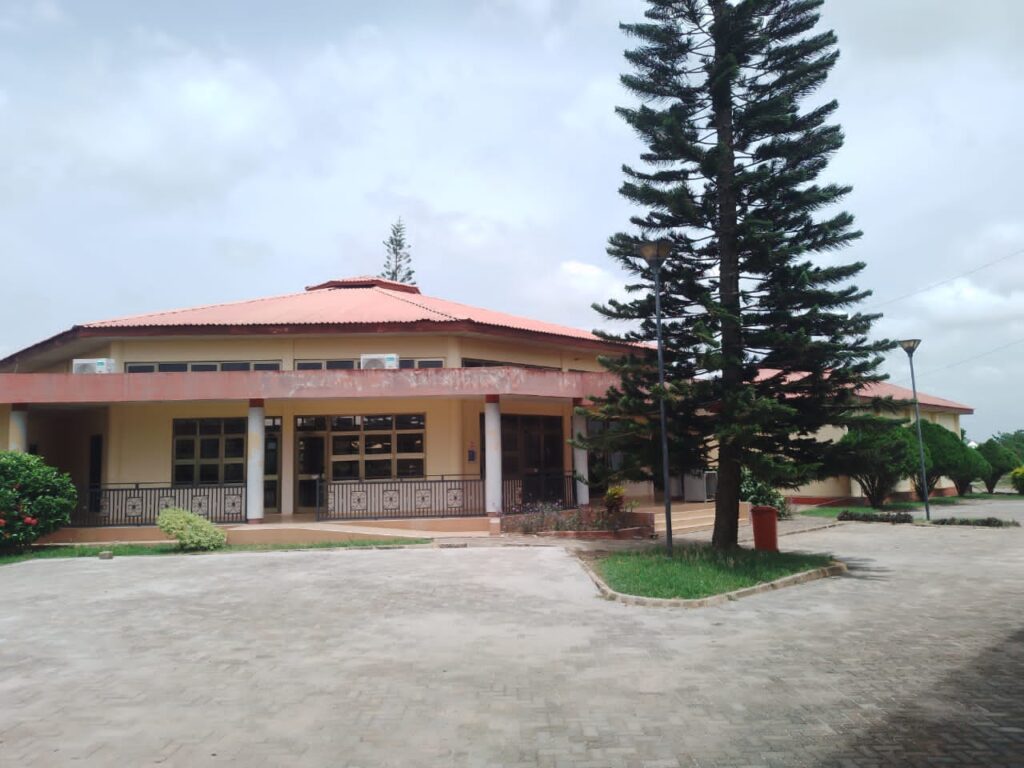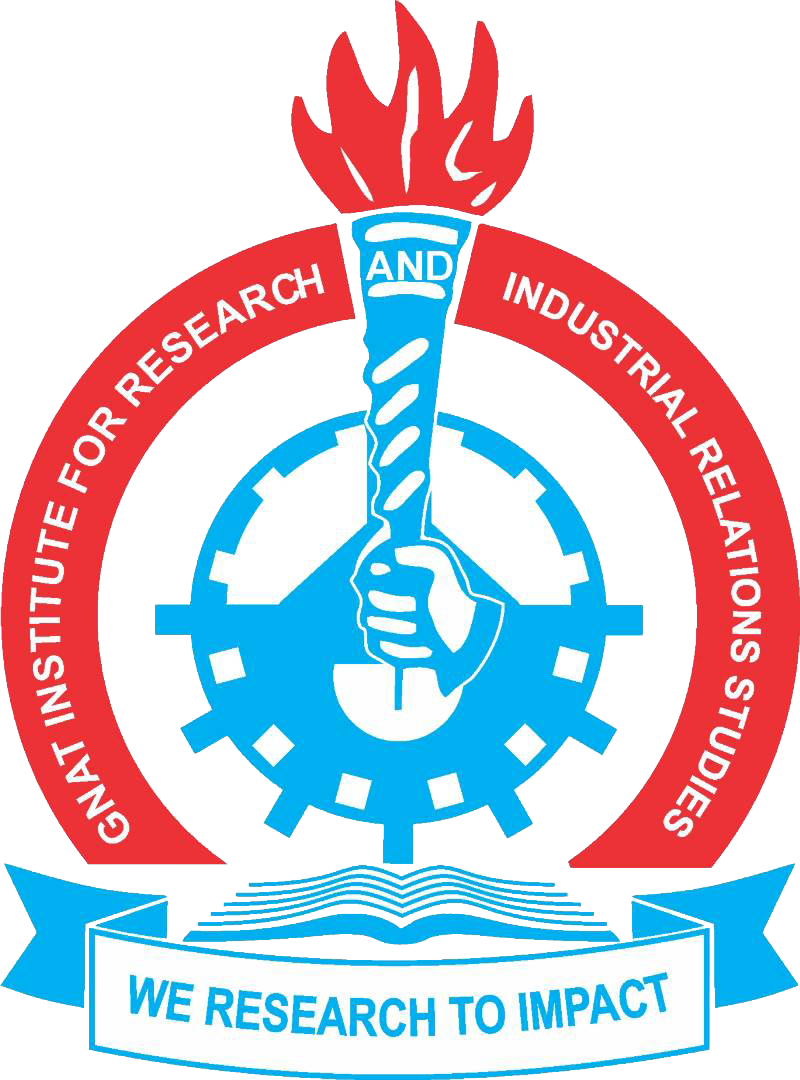The Owner of the Institute
The GNAT Institute for Research and Industrial Relations Studies is sorely owned by Ghana National Association of Teachers (GNAT).
A brief history of GNAT
The historical antecedent of GNAT can be traced to the formation of the Assisted School Teachers Union (ASTU) in 1931, under the leadership of J.T.N. Yankah, which later became the Gold Coast Teachers Union (GCTU). Tracing the history of GNAT from the ASTU in 1931 but not the Government Schools Teachers Union (GSTU) in 1926, is premised on the fact that, unlike the GSTU, ASTU represented all teachers from both Government and Unit Schools. In 1958, the Trade Unions Congress (TUC) was established under the Industrial Relations Act, 1958. However, due to the inability of the TUC to be independent of the Convention Peoples Party (CPP), in 1959, all trade unions in Ghana passed a resolution to be allowed to organize outside the TUC (Darkwah, 2014).


Strategic Compass of GNAT
Vision
To become a vibrant, resilient, pro-active, result-oriented teachers’ union championing the cause of teachers and quality education for a brighter future
Mission
To campaign effectively on behalf of our membership using legitimate channels, for improved terms and conditions in line with National and International Labour Laws, and provide Professional Development, Psycho-social and Economic services for our members in a Democratic, Non-partisan, Non-sectarian and Environmentally responsible manner through Innovation and a Committed Workforce
Core Values
Tolerance, Resilience, Unity, Solidarity, Transparency (TRUST)
Membership Strategy

About GNAT IRIRS
- Inadequate CPD interventions for teachers in Ghana: Promote career progression of teachers and high academic standards
- Disconnect between educational research with educational policy and practice: Shape public policy and practice to improve education and the world of labour
- Few labour studies and industrial relations institutes in Ghana: Advocate for a strong labour administration system through labour education
- A lag in management of pension fund: High demand for occupational pensions management education in Ghana
GNAT IRIRS
Strategic Mandate, Mission, Vision & Core Values
Strategic Mandate
The Institute has been established by an Act which mandates it to provide higher levels of education, to undertake cutting edge research and further nurture industrial relations. The name of the GNAT Institute for Research and Industrial Relations Studies is indicative of the core mandate that it seeks to achieve.
Mission
An institute dedicated to building bridges between the world of Research, the world of Labour and the TeachingAn Institute dedicated to building bridges between the world of research, labour and the teaching profession with the view to supporting and strengthening the teaching profession and industrial relation. Profession with the view to supporting and strengthening the Teaching Profession and Industrial Relations.
Vision
Shaping the future of research and continuous professional development in Ghana.
GNAT IRIRS
Core Values
The Institute is committed to academic and professional excellence and ensure institutional quality through continuous assessment and review of programmes, processes, policies, and outcomes.
The Institute supports different modes of disciplinary and interdisciplinary inquiring that examine underlying assumptions, explore issues from multiple perspectives, and develop new ways of thinking.
The Institute provides an educational and professional experience whereby theory and scholarship are connected and applied to real-world action and practice.
The Institute is of the view that knowledge comes with the responsibility to serve in advancing a culturally pluralistic, equitable, and interdependent world.
The Institute is committed to the highest ethical and professional standards of performance and conducts its affairs with transparency, integrity, and respect.

Objectives of the Institute
- Promote policy research and public discussion on emerging issues of concern to the teaching profession and industrial relations in Ghana and their constituents; the government, education, business and labour;
- Provide higher education to persons suitably qualified and capable of benefitingfrom such education
- Train professional teachers and industrial relations practitioners in methods of critical and independent thought; making them aware of their responsibility to use their education for the general good of the Ghanaian society;
- Provide facilities for and engaging in teaching and research for the purpose of promoting the advancement and dissemination of learning and knowledge with particular reference to the needs and aspirations of the teaching profession and industrial relations, the people of Ghana and the furtherance of co-operation between African States;
- Provide avenue for Continuous Professional Development activities for professional teachers and industrial relations practitioners;
- Provide instruction and undertaking research for the advancement of knowledge in such branches of learning and study for persons whether members of the Institute or not and in such manner as it shall determine;
- Provide facilities for and engage in teaching and research for the purpose of promoting the advancement and dissemination of learning and knowledge with particular reference to the needs and aspirations of the people of Ghana and the furtherance of co-operation between African States;
- Produce self-motivated individuals with moral and intellectual values in the realization of their responsibilities to God, fellow citizens and the state;
Principles of the Institute
- That in determining the programmes and courses to be taught, emphasis shall be placed on a balanced pursuit of the humanities, the sciences, the development, application and management of technology, which are of special relevance to the needs and aspirations of Ghanaians in particular, and others in general;
- That higher education in this Institute shall be available to all Ghanaians and other Nationals who are capable of benefiting from it;
- That research shall be undertaken in all courses which are taught in the Institute but with attention to courses which relate to the social, cultural, economic, scientific, technical and other problems which exist in Ghana or elsewhere;
- That the research outcomes and knowledge generally shall be disseminated by the publication of books and papers and by any other suitable means;
- That students shall be taught methods of critical and independent thinking, while being made aware that they have a responsibility to use their education for the service of the country and humanity;
- As far as practicable the students shall be trained to be innovative and entrepreneurial to enhance socio- economic development;
- operationalize local, regional and global needs assessment as the basis for practical outreach programmes in the local and regional communities;
- To inculcate in the students ethical, moral and intellectual values that manifest in courage, discipline, fair play, self-motivation and respect for the dignity of an honest life.
The Divisions
There are four (4) Divisions of the Institute. These are:
- Division of Research
- Division of Educational Studies
- Division of Industrial Relations Studies
- Division of Continuous Professional Development (CPD)

